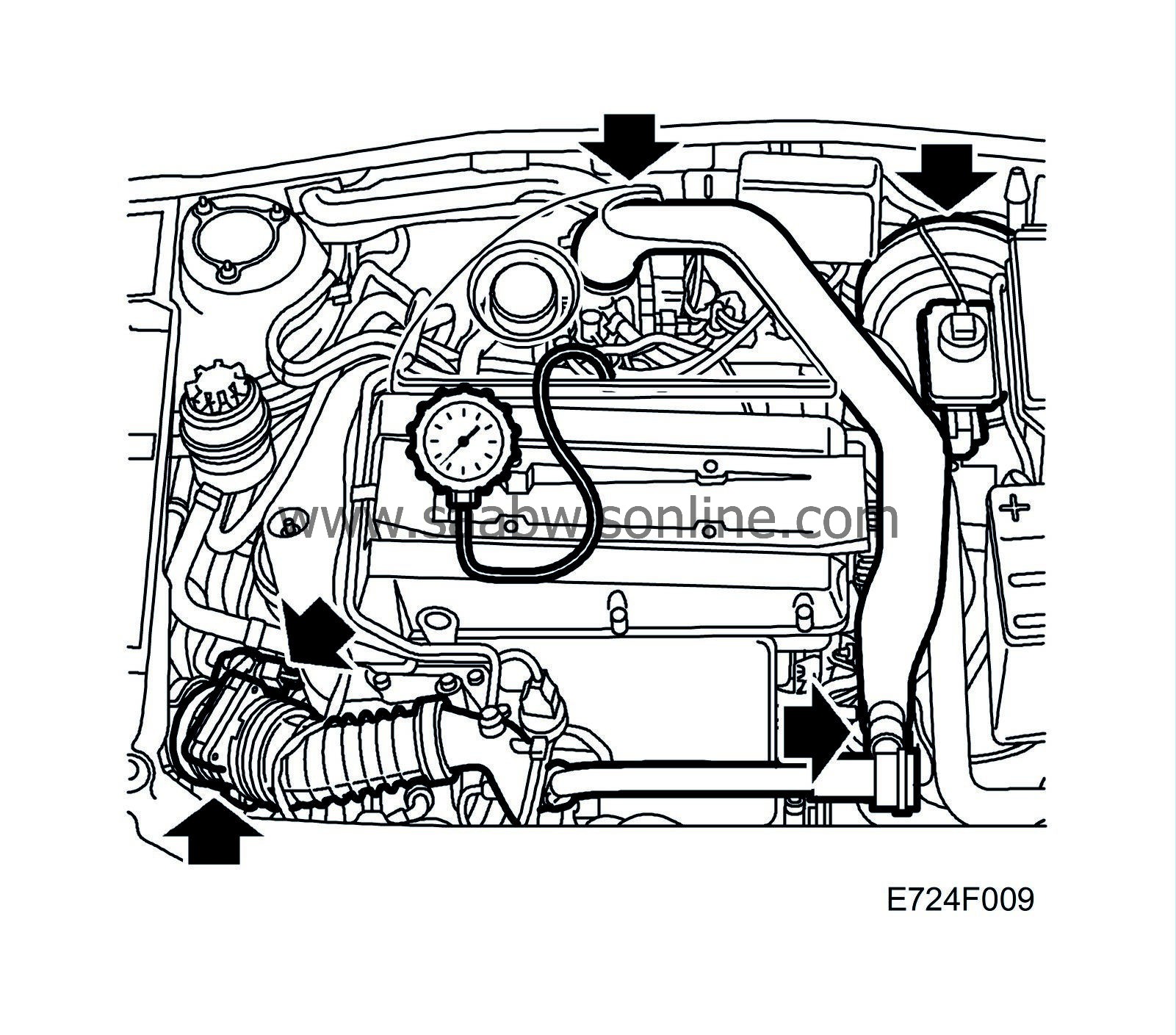P1181
Read the instructions below then
start the fault diagnostic procedure.
Symptom: CHECK ENGINE.
Engine may stop after starting, uneven running and misfiring or idling speed too high.
Long Term Fuel Trim Additive. Max Value, Air/Fuel too Lean.

Fault symptoms
|
•
|
Engine may stop after starting, uneven running and misfiring or idling speed too high.
|
On-Board Diagnostics
Type of diagnosis:
|
-
|
Continuous. However, it is interrupted once the fault criteria have been fulfilled and does not restart until the next driving cycle.
|
Enable criteria:
(Conditions that must be fulfilled for diagnostics to be performed.)
|
-
|
Engine running and closed loop active. One multiplicative and one additive adaptation have been performed.
|
Fault criteria:
(When enable criteria have been fulfilled, diagnostics will check if the fault criteria have been fulfilled.)
|
-
|
Additive adaptation exceeding 4 mg/c for more than 30s.
|
Dependents:
(Once fault criteria have been fulfilled, a number of other diagnostics must report OK before the diagnostic trouble code can finally be generated.)
|
-
|
P0116, P0117, P0118, P0131, P0132, P0134, P0444, P0445 and P1105.
|
System reaction to a fault:
(Once the fault criteria have been fulfilled, certain measures will sometimes be taken.)
OK report:
(This diagnosis may be included as a dependent to another diagnosis and must therefore report OK even if it is continuous. The OK report is also used in fault handling to count down the fault counter.)
|
-
|
On condition that the fault criteria have not been fulfilled during the driving cycle, an OK report is issued after the ignition is turned off and before the engine has stopped. Two types of OK report can be issued:
Type 1: If a diagnostic trouble code is already stored for the diagnosis and the same operating conditions have occurred (coolant temperature above or below 71°C, engine speed +/-375 rpm and load +/-10%).
Type 2: If there is no diagnostic trouble code stored for the diagnosis or the same operating conditions have not occurred.
|
Fault handling:
(Refer to section “Fault diagnosis, general” for more information.)
Diagnostic help
At idling speed, the engine's fuel requirements have been 25% greater than that calculated by the control module based on information from the mass air flow sensor.
The fault diagnosis first establishes whether the pressure sensors indicate roughly the same value with the ignition in position ON, since the mass air flow sensor is later compared with the intake air pressure. If the pressure sensors are OK but the value from the mass air flow sensor is incorrect, check first for air leaks after the throttle before changing the sensor.
If the air quantity is OK, the fuel supply is checked, i.e. pressure, pressure response, pump flow and subsequently the injectors.
Diagnostic tool functions related to this fault:
|
•
|
Diagnostic status for the diagnosis.
|
|
•
|
Additive adaptation, unit mg/c.
|
|
•
|
Purge adaptation, unit %.
|
|
•
|
Air mass deviation from calculated, unit %
|
Refer also to the description of readings under ”Fault diagnosis, general” for more information
See
 .
.
 .
.



